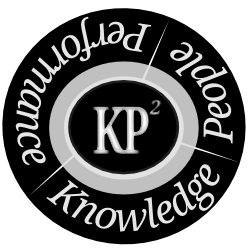My new article, entitled “Sense, seize, reconfigure: online communities as strategic assets,” was recently published in the Journal of Business Strategy. The article was co-authored by my colleagues Matthias Wenzel, Heinz Theo-Wagner and Jochen Koch. Its purpose is to explore and illustrate how organizations may use online communities strategically to adapt to a changing business environment, specifically from a dynamic capabilities perspective. We draw on three cases to show how communities may be used to sense opportunities and threats (case 1: Notebooksbilliger AG), seize opportunities (case 2: BMW Group) and reconfigure organizational assets (case 3: Funke Mediengruppe). Continue reading New Article: Online Communities as Strategic Assets
Tag: strategic management
Dynamic Capabilities: A Definition, Visualization, and some References
The PhD program I am enrolled in is called ‘Dynamic Capabilities and Relationships’. One question I hear frequently from both colleagues and friends is: What are these dynamic capabilities? This post aims at providing a definition, a graph, and some references that I can refer people to when I hear this question again in the future.
Dynamic capabilities have emerged as a major stream in the field of strategy research over the past 15 years (Eisenhardt and Martin, 2000; Hodgkinson and Healey, 2011; Teece, Pisano, and Shuen, 1997). They are defined as “the firm’s processes that use resources – specifically the processes to integrate, reconfigure, gain and release resources – to match and even create market change. Dynamic capabilities thus are the organizational and strategic routines by which firms achieve new resource configurations as markets emerge, collide, split, evolve, and die” (Eisenhardt and Martin, 2000, p. 1107). At their core, the development of dynamic capabilities is the response of strategy researchers to an ever-changing world. Continue reading Dynamic Capabilities: A Definition, Visualization, and some References
Social Software, Strategic Management & Dynamic Capabilities
The doctoral program I’m in right now is called Dynamic Capabilities and Relationships, in short DCR. I’ve been trying for a while to make connections between the phenomenon I’m interested in, i.e. social software use in organizations, and strategic management. With publications like the one below from Haefliger and colleagues, bridges are being built and the path from the former to the latter is being made visible. I did not come across any work to date, however, that would explicity address the link between social software use and its implications on (the strategic management concept of) Dynamic Capabilities. Reading the below passage in a MISQ comment by Ann Majchrzak got me really excited:
Yet many contributors to organizational wikis […] organize others’ contributions not for social exchange or social capital motives, but instead because they are genuinely concerned about the organization’s ability to adapt to the needs of a volatile environment (Majchrzak et al. 2006). Not only should findings like this encourage us as researchers to rethink social exchange and social capital theories, but they also should encourage researchers in other domains, such as dynamic capabilities models (Eisenhardt and Martin 2000) to modify their theories to include information shaping as an important dynamic capability of a firm.
We’ll have Jeff Martin, the second author of the latter paper quoted my Majchrzak, over in Berlin in a couple of weeks and I’ll make sure to bring this issue up while he’s here. In case you’re interested, here’s an interview with him about the paper mentioned above and the idea behind Dynamic Capabilities: Jeffrey Martin on competing in fast-moving dynamic environments.
References:
Eisenhardt Kathleen, M., & Martin Jeffrey, A. (2000). Dynamic capabilities: What are they. Strategic Management Journal, 21(10/11), 1105–1121.
Haefliger, S., Monteiro, E., Foray, D., & von Krogh, G. (2011). Social Software and Strategy. Long Range Planning, 44(5-6), 297–316. doi:10.1016/j.lrp.2011.08.001
Majchrzak, A., Wagner, C., & Yates, D. (2006). Corporate wiki users: results of a survey. Proceedings of the 2006 international symposium on Wikis, WikiSym ’06 (pp. 99–104). New York, NY, USA: ACM. doi:10.1145/1149453.1149472
Majchrzak, A. (2009). Comment: Where is the Theory in Wikis? Management Information Systems Quarterly, 33(1), 18–20.

